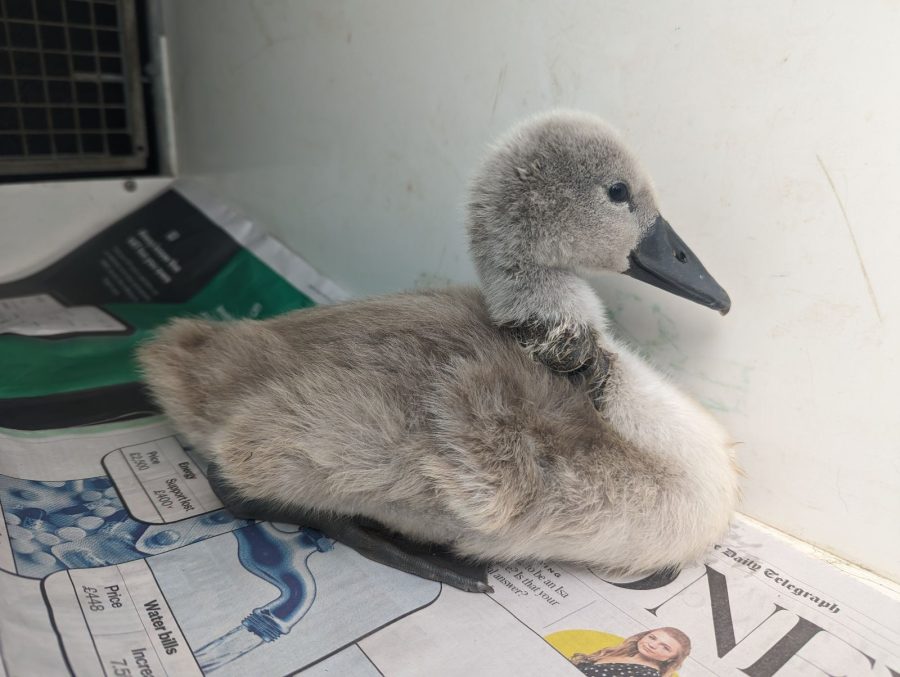A summer rise in reports of animals injured by discarded fishing litter has prompted the RSPCA to issue a stark warning to new and inexperienced anglers.
The warning comes as the number of calls last year to the charity reporting wildlife injured by angling litter (such as old fishing line, weights and barbed hooks) almost doubled over the summer, rocketing by 97%, with 186 reports in July compared to 94 in January.
As National Fishing Month gets underway (1-31 August), the charity suspects that amid forecasted warmer weather and schools breaking up, more people are taking up outdoor activities such as fishing for the first time. Inexperience, however, can sadly lead to more dangerously discarded angling litter.
The RSPCA received 1,245 calls about fishing litter across England & Wales throughout 2022, with around half (614 or 49.3%) of those calls made between June and September.
Across England and Wales, Staffordshire (75), Greater Manchester (71), Merseyside (60), West Midlands (58) and Greater London (56) were the five counties where fishing litter reports were most numerous in 2022.
RSPCA senior scientific officer Evie Button said: “This seasonal, summer leap in the number of calls about wild animals injured by fishing litter is a real cause for concern. Animals like swans, geese and even hedgehogs are swallowing lethal fish hooks or piercing their beaks, or their wings or legs are getting tangled up in fishing line. They’re suffering all sorts of awful injuries, sometimes with tragic consequences.

An injured cygnet
“Our inspectors and officers are working hard to rescue as many of these stricken animals as they can. Thankfully, many can be saved but they may require a lot of care, treatment and rehabilitation. Others aren’t so lucky and sometimes their injuries are just too severe for them to survive.
“It’s tragic for animal lovers like us to see the effects of this discarded litter, especially when there is such a simple solution: clear up your litter – whether it’s fishing-related or general – and take it home with you. We’re particularly concerned that this rise in angling litter injuries may be due to new and inexperienced anglers taking up the activity, as most experienced anglers are very responsible when it comes to wildlife and taking care of their equipment – so it’s more important than ever to get the message out there.”
Recent cases where the RSPCA’s team of rescuers have been called to help wildlife injured by angling litter include:
- Cheshire: A hedgehog sadly could not be saved after swallowing a fishing hook and line in Nantwich last October.
- Staffordshire: A Canada Goose in Stoke on Trent was rescued by the charity in May last year when she became entangled in a discarded fishing line
- Greater Manchester: A pigeon was left hanging from a tree over a lake and a swan will have a permanent hole in his tongue after both birds were victims of carelessly discarded fishing tackle following two incidents this April
- Merseyside: A swan on Eccleston Mere in St Helens had a lucky escape after a hook pierced her neck and she became entangled in fishing line. An RSPCA officer was able to catch her and carefully cut off the fishing line. Though the hook had pierced the swan’s neck, it had thankfully not caused her serious injury.
- Devon: A swan with two fishing hooks embedded in his neck and bill in Totnes was rescued by an RSPCA team in June this year. Fortunately, once the lethal items had carefully been removed, he was returned to the wild.
- Durham: Last month (July) a discarded fishing hook claimed the life of a cygnet in Durham after it became embedded in the young bird’s neck and tore its esophagus
- Suffolk: A Canada goose and a swan both became trapped by the same length of fishing line in a marina in Ipswich in December 2022. An RSPCA officer successfully disentangled them and luckily they were unharmed.
Sadly, it only takes one careless person to endanger the life of an animal by not disposing of fishing litter. The RSPCA urges all anglers to follow the Angling Trust’s Take 5 campaign and make use of the recycling scheme to dispose of waste tackle and line.
Evie added: “Most anglers are very responsible when disposing of their litter, but unfortunately it only takes one piece of snagged or discarded fishing line to endanger the life of an animal. Discarded line, in particular, is a terrible hazard for wildlife, especially as it can be almost invisible.
“We’re asking all anglers to be extra cautious and make sure nothing is left behind by following our simple steps to protect the environment and wildlife from harm.”
Best practice guidelines include:
- Take old fishing line and spools to recycling points in local tackle shops or fisheries. Your nearest recycling point can be found on the Anglers National Line Recycling Scheme (ANLRS) website. Alternatively, old fishing line can be posted to the address on the ANLRS page.
- Be aware of surrounding trees – discarded line caught in foliage causes problems for wildlife.
- Don’t leave bait unattended – always remove it from the hook and put it in a safe place.
- Use a reusable bait container. Don’t take bait in tins.
- Dispose of any litter you see, even if it’s not your own.
Anglers can visit the RSPCA website for more information about disposing of fishing litter properly.
The warning comes at an exceptionally busy time for RSPCA officers on the frontline. The charity has created an animation to explain how people can best help animals in need. Every time a small wild animal is helped by the public it frees up the charity’s vital specialist rescuers to reach animals suffering heartbreaking cruelty and neglect, a job no other charity does.
The RSPCA urgently needs more people to help so they have produced some quick and easy tools at rspca.org.uk/reportcruelty to support people to get wildlife the help they need as quickly as possible.
More news like this can be found in The Country Smallholder magazine. Subscribe here.
For FREE updates from the world of smallholding, sign up for The Country Smallholder newsletter here.








